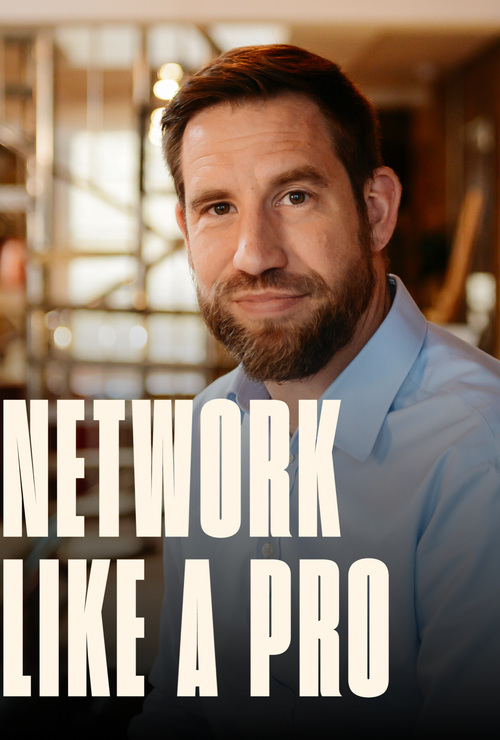There was a time when the terms "telecommuting" and "home office" weren’t something you heard every day. Today, however, they’ve been cast into the limelight. David Blay, journalist and author of the book "Why won’t they let us work from home?" provides the basics needed to ensure remote working is an effective and sustainable solution for all.
10 lessons
Challenges
Challenge is a professional Bootcamp to get you at the top of your game. We’ve chosen these speakers carefully, so you have no excuses when it comes to giving your career a boost. Get new episodes aimed at coaching you on a specific theme such as stress management, productivity, remote working, or public speaking.
New challenges to discover!
Start a challenge
Complete the challenge to develop new skills
Put the advices into your daily life!
Lessons
10 lessons

Why you are ready for this
The best lessons are the ones we learn without even realising it. Lockdown forced many people to acquire new skills in short order, drawing upon the hidden reserves of a singular strength: adaptability. To those who don’t feel ready to work remotely, David Blay would argue that they already are—they just don’t know it yet.
Lesson 1 • 3mn
Building on strong fondations
With lockdown, the shift to working from home came about in a hurry. Now it’s more important than ever to take a step back and reflect. Whether home or office, what works best for each individual and their position? In the answer to this question lies the key to sustainable work habits.
Lesson 2 • 4mn
New rules, new schedule
A 9-hour day at the office should roughly translate into 5 hours at home. This is Blay's conclusion—but it only works when a routine is established. By knowing how much time things actually take, you’ll be able to keep up with your workload, reduce stress and boost your performance.
Lesson 3 • 5mn
How to meet remotely
Working from home does not mean working all alone. Maintaining good communication is an essential part of a company’s success. That’s why the importance of video conferencing cannot be underestimated. But to remain truly relevant, some ground rules must first be established.
Lesson 4 • 4mn
Working with goals
Working to meet objectives, instead of just putting in the hours, helps employees gain autonomy and boost performance. But to avoid being overwhelmed by deadlines, time management is key. In this episode, Blay offers advice on how to organise your time better and break free from the office clock.
Lesson 5 • 5mn
Trust and performance
Telecommuting can be challenging for some managers, since it requires a certain amount of blind faith at first. But in most cases, distance and performance are perfectly compatible. By setting clear objectives, employees are free to do their jobs independently with no negative impact on the company's results. It’s quite the opposite, in fact!
Lesson 6 • 3mn
When remote work hurts
While some people thrive in remote working situations, others find themselves floundering. But there’s hope. Taking the time to open up about it, or simply talk, can help establish positive communication and identify growing pains. And it can all begin with a simple and sincere, "How are you doing?".
Lesson 7 • 5mn
An office life without an office
It’s a common truth that you don't choose your colleagues. However, socialising in the office—even without an office—is the key to building trust and good relationships. According to Blay, we must give importance to the accomplishments of each individual. That's how a collective is created, even at a distance.
Lesson 8 • 4mn
Remote recruitment
Remote work opens up a whole new world of possibilities. Looking past the issue of distance widens the pool of potential recruits and demonstrates the kind of flexibility that attracts new talent. In this episode, Blay gives tips on how to conduct interviews and onboard newcomers in the virtual realm.
Lesson 9 • 5mn
How to unplug
To prove they’re productive at home, many people feel pressured into making themselves available at all times. A typical example is answering emails the minute they arrive. But patience is a virtue in a world of new technologies. Setting limits makes it easier to manage your workload, avoid careless mistakes and learn how—and when—to disconnect.
Lesson 10 • 4mnMore challenges
A quick movement of the enemy will jeopardize all questions asked five judges

Free Your Emotions
Les émotions, un truc de fragile ? Au contraire : elles sont une de vos plus grandes forces.
10 lessons
Communicate remotely
Rethink how you communicate and maintain strong relationships in the age of instant messaging.
10 lessons
Speak out!
Strengthen your public speaking skills for improved oral fluency and powers of persuasion.
10 lessons
Lead your negotiation
10 lessons

Network like a pro
Use networking to boost opportunities and expand your circle of professional contacts
10 lessons